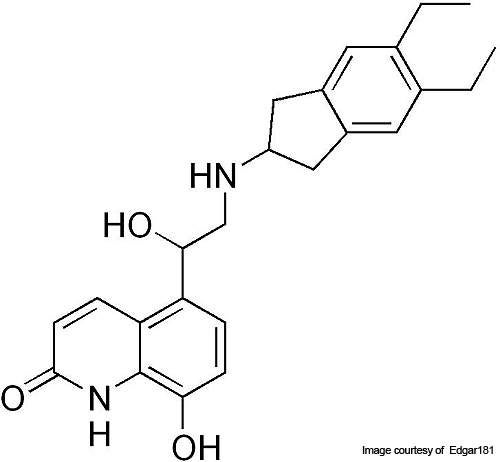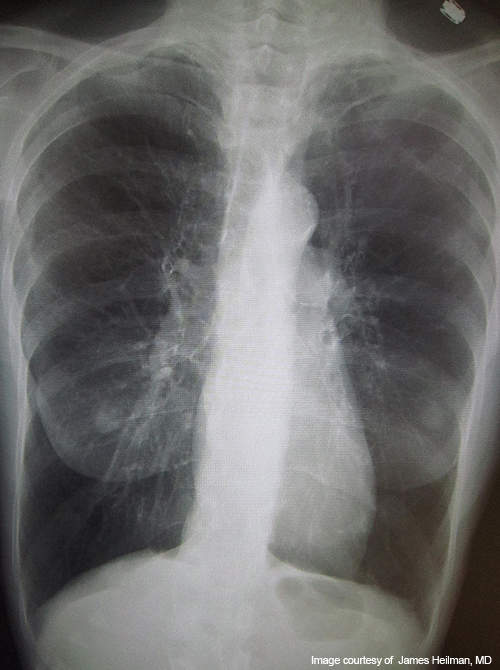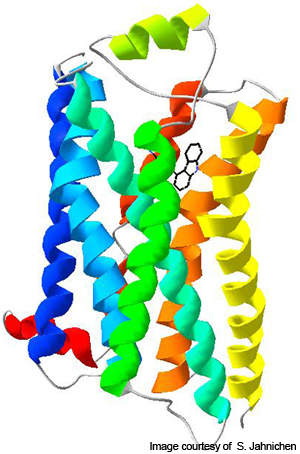Onbrez capsules are hard capsules developed by Novartis for the treatment of chronic obstructive pulmonary disease (COPD). The capsules are provided with a breezhaler, a device which allows the inhalation of the contents present in the capsule shell.
Onbrez 150mcg and 300mcg doses were approved to treat COPD patients in Europe in December 2009.
Novartis submitted a new drug application in 2008 and received a complete response letter from the FDA asking for additional data on the doses in June 2009. The drug received US FDA approval for 75mcg doses in July 2011. It is being marketed under the brand name arcapta in the US.
Onbrez 150mcg obtained approval in Japan to treat COPD patients in July 2011.
The capsules are now approved in approximately 60 countries and have been launched in more than 30 countries.
Chronic obstructive pulmonary disease (COPD)
COPD is a lung disease that affects breathing. There are two types: chronic bronchitis which causes a long term cough with mucus, and emphysema which causes damage to the lungs. Patients can sometimes have both types of COPD.
The disease is caused mainly due to smoking. It may even affect a non smoker devoid of a protein called alpha-1 antitrypsin.
Symptoms include coughing, mucus, difficulty breathing, respiratory infections, fatigue and wheezing.
Around 210 million people worldwide suffer from COPD and in Europe the number of patients suffering from COPD is around 82 million.
How onbrez works as a treatment drug
Onbrez (Indacaterol Maleate), a ß2-adrenergic agonist, is a chemical whose actions resemble that of adrenaline.
It stimulates the enzyme adenyl cyclase, which enhances the production of adenosine monophosphate (AMP) by converting adenosine triphosphate (ATP) to AMP.
Higher levels of AMP enhance relaxation of the bronchial muscle and hence dilate the bronchia. Indacaterol starts immediate action and provides relief for a longer period of time.
Clinical trials and phases
Phase I trials were conducted to evaluate and compare the cardiac safety of the drug to that of placebo. The trial was initiated in April 2008 and completed by August 2008. Around 404 patients were enrolled and administered either Indacaterol or placebo.
Phase II studies were initiated in Japan to evaluate the safety and efficacy of the drug in asthma patients in November 2006 and uses around 41 patients. Patients were administered different doses (150, 300 & 600µg) of indacaterol.
Another Phase II trial was initiated to compare the response of the drug in COPD patients at various doses. The trial, which began in November 2007, enrolled around 568 patients and was completed in July 2008.
Phase III trials of onbrez
Phase III trials to evaluate safety and efficacy of twice daily doses were initiated in October 2006 and completed by August 2008. The study recruited 1,716 patients who were administered either 300mcg or 600mcg of indacaterol, formoterol or placebo.
A 12 week Phase III trial called Insist was conducted in 1,123 patients having moderate to severe COPD. The patients were administered either indacaterol 150mcg once daily dose or salmeterol 50mcg twice daily dose. The results of the trial were released in September 2010.
The primary end point was met and indacaterol was proven to be superior to salmeterol. The Phase III Intensity trial was conducted in around 1,598 patients with moderate to severe COPD.
Patients were administered either 150mcg of indacaterol or 18mcg of tiotropium. The trial data released in November 2010 showed indacaterol was proven to be superior when compared to tiotropium and hence the primary endpoint was met.
The Phase III Intrust one study was conducted in 1,134 patients and the Intrust two study was conducted in 1,142 patients with moderate to severe COPD. Patients were administered either 150mcg of indacaterol or 18mcg of tiotropium.
The final trial data for the two trials was released in May 2011 and primary endpoint was met for both the trials. Patients administered with indacaterol in combination with tiotropium were found to show better improvements than that of tiotropium alone.
The Phase III Bright study which was initiated in February 2011 will enrol 80 patients. The study is being conducted to evaluate the effect of indacaterol in combination with glycopyrronium bromide in moderate to severe COPD patients performing fitness exercise. The study is expected to be completed by December 2011.
A Phase III trial called Invigorate is being conducted to compare the effect of indacaterol in bronchodilation to that of tiotropium. The study, which began in 2009, is being conducted in around 325 locations and has enrolled around 3,000 patients with moderate to severe COPD. The patients will be administered either 150mcg of indacaterol or 18mcg of tiotropium. The entire study is expected to be completed by July 2012.
A Phase IV trial will be conducted to evaluate and compare the effect of indacaterol in COPD patients to that of formoterol. The trial, which will begin in September 2011, will enrol around 400 patients. It is expected to be completed by February 2012.





